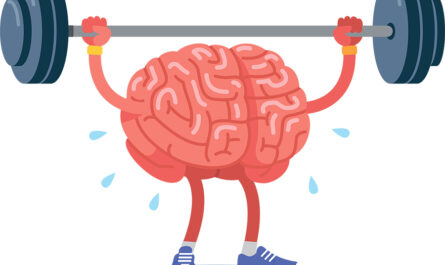Education is a journey that is as unique as each student’s fingerprint. Identifying strengths and pinpointing areas needing improvement are essential elements in nurturing a well-rounded and successful academic path. In the realm of mathematics, this understanding is paramount for shaping confident and capable learners. This is where Math Grade Level Diagnostic Tests come into play. In this comprehensive exploration, we will delve into these tests’ purpose, significance, and transformative impact, spotlighting the Educo Learning Center (ELC) Diagnostic Test.
Page Contents
The Purpose of Diagnostic Tests:
Math Grade Level Diagnostic Tests are strategic evaluations designed to gauge a student’s mathematical skills and comprehension at a specific grade level. These assessments are a collaborative effort between educators and parents to uncover the student’s strengths and areas needing improvement. This valuable insight is the cornerstone for targeted instruction and support, fostering growth and a deep understanding of mathematics. Here are key takeaways about Math Grade Level Diagnostic Tests:
ELC Diagnostic Test
Educo Learning Center(ELC) takes the concept of diagnostic testing to new heights. The ELC Diagnostic Test is meticulously crafted to align with the math curriculum and standards specific to a particular grade level. This alignment ensures that the assessment accurately mirrors the grade’s academic journey requirements.
Unveiling Prerequisite Skills
Diagnostic tests transcend the present curriculum by delving into the past. They uncover prerequisite skills from earlier grade levels, ensuring the student’s foundation is strong. These skills are integral to comprehending new concepts introduced in the current grade level.
Navigating Grade-Specific Skills
Diagnostic tests are not confined to the surface; they delve into grade-specific skills and content. This comprehensive approach provides educators and parents with a panoramic view of the student’s mathematical strengths and areas for growth.
Comprehensive Learning Landscape
The breadth of diagnostic tests is impressive. They encompass an array of mathematical concepts, creating a holistic assessment that unveils a student’s capabilities across the subject.
A Roadmap for Success

Following the assessment, the diagnostic test results, accompanied by “I can do” statements, pave the way for a personalized learning journey. These insights facilitate a targeted learning experience tailored to the individual student’s needs.
Tailored Learning Experiences
Every student learns at their own pace and in their own style. Diagnostic tests allow educators to customize the learning experience to suit an individual student’s needs. By understanding a student’s strengths and areas needing improvement, teachers can adapt their teaching strategies, making lessons more engaging and relevant. This personalized approach not only helps bridge knowledge gaps but also promotes enthusiasm for learning.
Monitoring Progress Over Time
Diagnostic tests aren’t a one-time tool. They can be used periodically throughout the academic year to monitor a student’s progress. This iterative approach helps educators in tweaking teaching methodologies and ensuring that students are on the right path. Additionally, it provides students with a tangible sense of their improvements and motivates them to keep striving for excellence.
Empowering Students to Self-Reflect
Apart from aiding educators, diagnostic tests empower students to engage in self-reflection. When students are made aware of their strengths and areas needing improvement, they can take ownership of their learning. They can actively seek out resources, ask pertinent questions, and prioritize their efforts effectively, becoming more autonomous and responsible learners.
Strengthening Teacher-Parent Collaboration
Effective education requires collaboration between educators and parents. With the insights derived from diagnostic tests, teachers can provide parents with specific feedback about their child’s academic journey. This facilitates open communication and collaboration between home and school, ensuring that students receive the necessary support both in the classroom and at home.
Fostering a Growth Mindset
Diagnostic tests are not about labeling students based on their current capabilities. Instead, they serve as a tool to foster a growth mindset. By focusing on areas of improvement and celebrating strengths, students learn to embrace challenges and understand that abilities can be developed. This approach nurtures resilience and determination, qualities that are essential for lifelong learning.
ELC’s Diagnostic Test transcends being a mere assessment a beacon of opportunity. By recognizing a student’s current understanding and identifying prerequisite skills, ELC constructs a bridge to effective learning. This empowers students to forge a solid foundation, build resilience, and tackle challenges head-on.
Math Grade Level Diagnostic Tests stand as catalysts for growth in the world of education. They empower educators and parents with the insights needed to nurture strengths and provide targeted support. ELC’s Diagnostic Test serves as a testament to this empowerment. With its alignment to curriculum, evaluation of prerequisites, comprehensive insights, and tailored learning, it signifies a holistic approach to math education.
To dive deeper into the world of ELC’s Diagnostic Test and its transformative capabilities, explore the comprehensive information available at ELC’s Diagnostic Test. It’s an opportunity to unlock the potential of every student, foster excellence, and set them on the path to mathematical brilliance! As parents, educators, and learners, let’s embrace the power of diagnostic testing and make strides toward a brighter future in mathematics and beyond.
Final Thoughts
In the ever-evolving educational landscape, identifying a student’s strengths and areas requiring attention is paramount. For each specific grade level, this not only ensures the alignment of curriculum and pedagogical approaches but also fosters a learning environment where students feel seen and supported. Diagnostic tests and tailored learning experiences bridge the gap between standardized education and individualized learning, ensuring every student receives the resources and attention they need to flourish.
The iterative process of regular assessments allows educators, parents, and students to monitor and celebrate progress, reinforcing the importance of consistent growth over mere academic achievement. The power of self-reflection is also harnessed, giving students an opportunity to become active participants in their learning journey. Collaborative efforts between teachers and parents, bolstered by clear, data-driven insights, amplify the potential for student success. Identifying strengths and areas of improvement isn’t just about academic enhancement; it’s about nurturing a growth mindset, building resilience, and preparing students for challenges both inside and outside the classroom.








